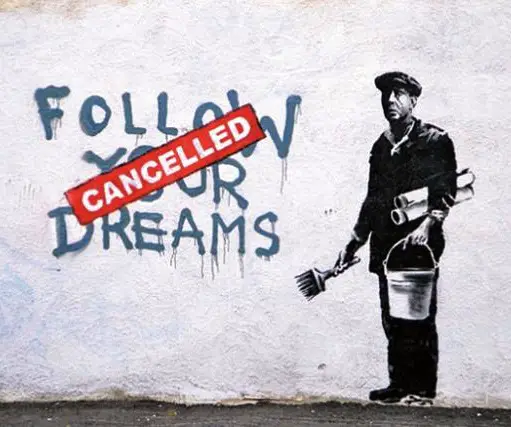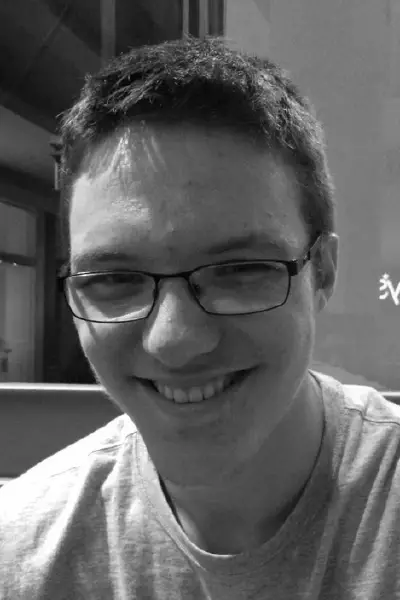The Half-empty Mindset
Especially in college, where stressing over uncontrollable situations is common, prepping for the worst is actually the best.
By Tim Philbin, College of the Holy Cross
Of the many challenges that college students face on a regular basis, providing counsel to friends must be among the most difficult.
Take the following situation, one that I’m sure will sound familiar to you: your friend, either by unfortunate happenstance or a series of poor decisions, has ended up in a rather sticky situation. He has no idea what to do next, but surely his wise, trusted friend (AKA you) will have the answer to his conundrum.
Your friend, however, asks you for counsel without realizing that this puts you in a rather delicate position, because now your friend has implicated you in the outcome of his predicament. If your advice leads to an undesirable outcome, it will have been at least partially your fault for recommending such an unwise course of action. This possibility weighs rather heavily on your mind as you try to think of what to tell your friend.
So, in an attempt to console your friend without giving actual advice, you stick to platitudinous phrases that sound comforting without giving hard and fast suggestions. You say, “everything will be okay,” or, “don’t worry about it,” or, “think positive,” or similarly meaningless banalities. In other words, you try to be optimistic. You try to get your friend to avoid thinking about the negative, and focus on the positive. This tendency has never made much sense to me, and I’ll explain why.
In choosing to largely ignore the possibility of a negative outcome, we forget that this possibility is just that, a possibility. The truth is that things do not always turn out the way we want them to. This optimistic way of viewing your problems is a form of make believe. You’re pretending that you can exert complete control over a variety of factors that, in reality, are completely out of your control. You are not God. You cannot control the minds of those around you any more than you can draw a square circle.
The truth is that this brand of optimism does not prepare you for reality. In reality, good things certainly do happen, but bad things happen too, and if you only have room in your thinking for the good things, then the cognitive dissonance of encountering the bad things will cause you confusion, anger and ultimately raw, emotional pain.
So, what should you do instead? I would propose that you do the complete opposite: rather than be optimistic, you should be pessimistic.
I understand that’s probably confusing—after all, isn’t pessimism dark and depressing? There is a wide cultural bias against pessimism and also against pessimists. They are naysayers, debbie downers and killjoys. Motivation speakers continually remind us of the power of positive thinking, which as near as I can tell consists of denying reality to fit the delusion that your thoughts have any effect at all on the world around you. Pessimists have nothing to contribute except pure negativity. As a lifelong pessimist myself, I can assure you that this is pure nonsense.
Actually, in truth, I don’t really like the term pessimist very much because it has been hijacked to mean useless negativity. I prefer the term “realist,” because it gets to the heart of the matter more directly.
I don’t pretend that the world is the way I want it to be. I accept it as it is.
Bad stuff happens sometimes. It might be hard to accept, but it’s a fact. Yes, it’s possible that you failed that test. Yes, it’s possible that you won’t get a job straight after graduation. Yes, it’s possible that you’ll have to part ways with a friend over a disagreement. Much as you might want to pretend that nothing so horrible could actually happen, the fact is that reality doesn’t care whether you’re ready for it or not. What will happen will happen, and no amount of happy thinking can ward off the inevitable hardships of life.
All these unhappy thoughts can seem rather depressing, but here’s the wonderfully uplifting part of pessimism: if things go horribly wrong, you’ll be prepared.
Because you will have already thought through every worst case scenario, you won’t be caught unaware by misfortune. By facing hardship head on, you take away its power . Tragedy is only tragic if you are unprepared for it.
Seen in this way, realism or pessimism or whatever you want to call it, becomes wonderfully empowering.
Far from depressing and negative, pessimism gives us the tools to face calamity head on with a smile on our faces.
Moreover, pessimism allows us to appreciate good times all the more. By mentally rehearsing worst case scenarios, best case scenarios become surprising little gifts, not fulfilled expectations. Appreciating periods of joy as transient does not detract from their beauty, but rather enhances it; they become special and worthy of savoring.
Part of what makes good times enjoyable is the knowledge that they will inevitably come to an end. With a pessimistic outlook, we can accept this fact with serenity and enjoy these good patches all the more.
So, to bring things back to the example I raised at the beginning of this article, with all the benefits of pessimism in mind, what should one do when consoling a friend?
First, avoid the urge to simply spit out vague, optimistic platitudes. Second, if you are a good friend, you will look your friend in the eye and tell him the truth, that things might not turn out the way he wants them to. But then help him to come to terms with that reality, and in doing so, disarm of it of its ability to worry him.
The choice is yours: You can escape into the temporary fantasy that your “positive thinking” will make things turn out for the best (in other words, you can voluntarily suffer from the delusion that reality will bend to your will); or you can accept and even to learn to love whatever comes your way, be it good, bad, or in between.











